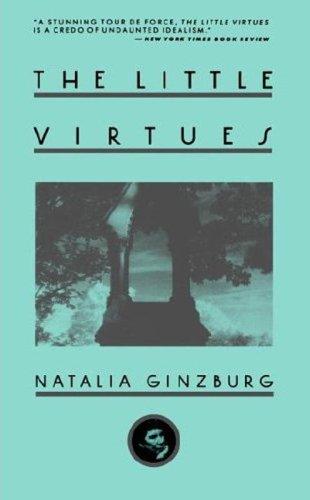Paperback, 110 pages
English language
Published Aug. 8, 1989 by Arcade Pub..

Paperback, 110 pages
English language
Published Aug. 8, 1989 by Arcade Pub..
"As far as the education of children is concerned," states Natalia Ginzburg in this collection of her finest and best-known short essays, "I think they should be taught not the little virtues but the great ones. Not thrift but generosity and an indifference to money; not caution but courage and a contempt for danger; not shrewdness but frankness and a love of truth; not tact but a love of ones neighbor and self-denial; not a desire for success but a desire to be and to know."
Whether she writes of the loss of a friend, Cesare Pavese; or what is inexpugnable of World War II; or the Abruzzi, where she and her first husband lived in forced residence under Fascist rule; or the importance of silence in our society; or her vocation as a writer; or even a pair of worn-out shoes, Ginzburg brings to her reflections the wisdom …
"As far as the education of children is concerned," states Natalia Ginzburg in this collection of her finest and best-known short essays, "I think they should be taught not the little virtues but the great ones. Not thrift but generosity and an indifference to money; not caution but courage and a contempt for danger; not shrewdness but frankness and a love of truth; not tact but a love of ones neighbor and self-denial; not a desire for success but a desire to be and to know."
Whether she writes of the loss of a friend, Cesare Pavese; or what is inexpugnable of World War II; or the Abruzzi, where she and her first husband lived in forced residence under Fascist rule; or the importance of silence in our society; or her vocation as a writer; or even a pair of worn-out shoes, Ginzburg brings to her reflections the wisdom and grace of a survivor and the spare, wry, and poetically resonant style her readers have come to recognize.